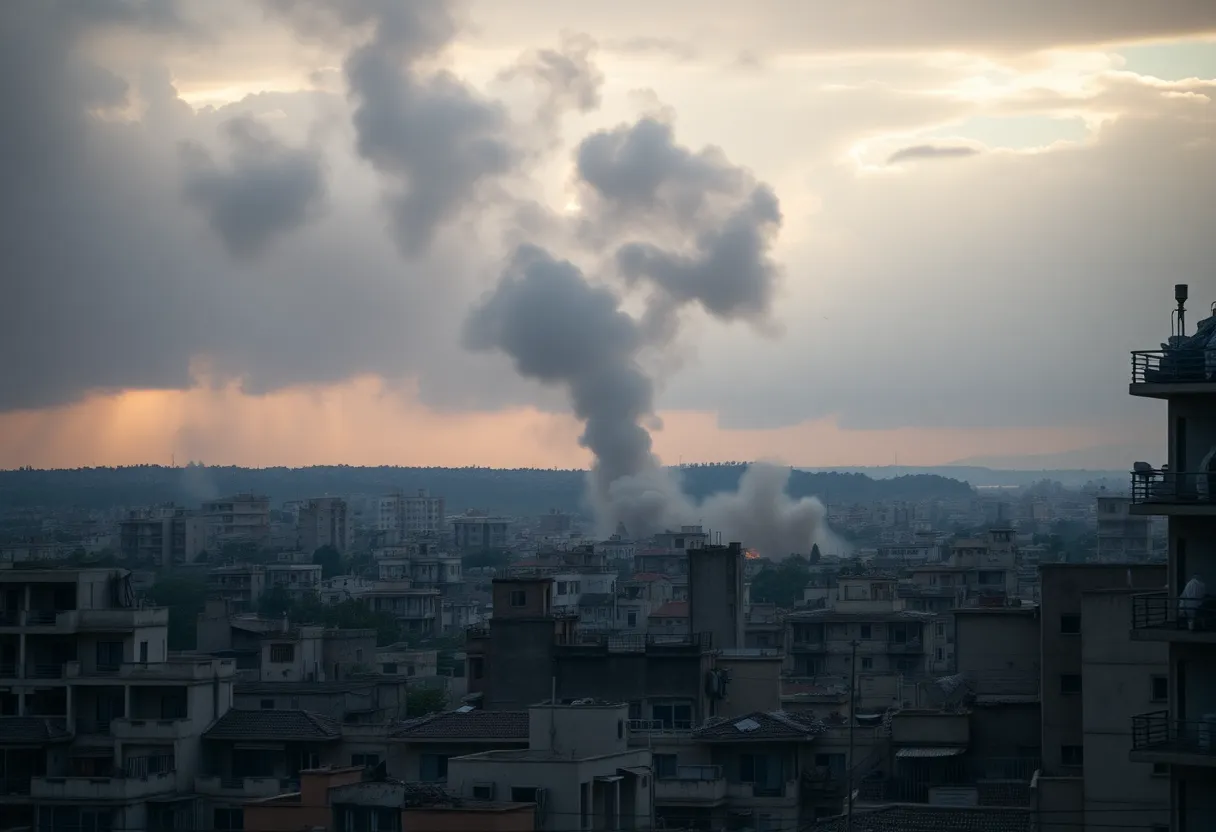News Summary
Israel has conducted extensive preemptive strikes against Iran, targeting its nuclear program and military infrastructure. These operations began in Tehran, leading to significant casualties, including high-ranking military officials. Prime Minister Benjamin Netanyahu asserted that the aim was to damage Iran’s nuclear capabilities. The U.S. has distanced itself from the actions, while Iran vows fierce retaliation. The situation has escalated tensions, causing disruptions in transportation and surging crude oil prices, as the conflict presents potential risks for the region’s stability.
Israel Launches Major Strikes on Iran’s Nuclear and Military Operations
In a dramatic turn of events, Israel has executed a series of large-scale, preemptive strikes against Iran, aimed primarily at crippling its nuclear program and military infrastructure. This military operation commenced early Friday local time and left significant casualties in its wake, including senior military leaders.
Focused Aggression on Key Targets
The Israeli forces targeted several locations across Iran, with the capital Tehran prominently affected. Among the casualties reported is Maj. Gen. Hossein Salami, who was leading Iran’s Islamic Revolutionary Guard Corps (IRGC). Other notable losses include Maj. Gen. Gholam Ali Rashid, along with two nuclear scientists, Mohammad Mehdi Tehranchi and Fereydoon Abbasi, all of whom were reportedly killed during these strikes.
Objectives Clearly Stated
The Israeli government, spearheaded by Prime Minister Benjamin Netanyahu, emphasized that the goal of these military actions was to severely damage Iran’s nuclear infrastructure, ballistic missile factories, and overall military capabilities. In the wake of the attacks, explosive scenes unfolded in various neighborhoods in Tehran, with residents describing the sound of explosions as alarming and disturbing.
No U.S. Involvement Stated
In response to these military actions, Marco Rubio, the U.S. Secretary of State, clarified that the United States was not involved in the Israeli strikes. He characterized the operations as necessary steps for the self-defense of Israel amidst escalating tensions in the region.
Damage and Destruction
Significant destruction was reported at various sites, including the famous One Holding Tower in Tehran, where visuals showed smoke billowing and windows shattered. The International Atomic Energy Agency confirmed that the Natanz nuclear facility was indeed one of the crucial targets hit during the bombardment.
Iran’s Response
In retaliation, Iran’s Supreme Leader, Ayatollah Ali Khamenei, issued a stern warning that Israel would face ‘severe punishment’ for its military actions. Iran’s military officials have also declared a readiness for retaliation, resulting in heightened military preparedness throughout the country.
Concerns of Widening Conflict
The situation has raised alarm bells regarding an escalating conflict in the region. As Israel conducts what it describes as a strategy to ‘decapitate’ Iran’s military leadership, fears of potential Iranian retaliation loom large.
Impact on Transportation and Economy
Amid these heightened tensions, El Al, Israel’s national airline, has suspended flights, reflecting a state of caution amidst the unfolding events. Furthermore, crude oil prices surged dramatically following the strikes, emphasizing worries about potential disruptions in the Middle Eastern oil supply chain.
Domestic and International Reactions
Back in the U.S., various lawmakers have expressed their backing of Israel’s military actions, cautioning Iran against any retaliatory measures. As the situation continues to develop, signals from both sides hint at a possible military escalation, with each nation positioning itself for whatever comes next.
Looking Ahead
As the impacts of these airstrikes reverberate across not only Iran but the entire region, the international community watches closely. Amidst this backdrop, Israeli Defense Minister Israel Katz has reiterated his commitment to thwarting Iran’s nuclear ambitions, recognizing this as his top priority. As events continue to unfold, many are left wondering what the next chapter holds for this volatile region and its inhabitants.
Deeper Dive: News & Info About This Topic
- The Washington Post: Israel Attacks Iran
- Wikipedia: Israel–Iran Relations
- The New York Times: Israel-Iran Conflict
- Encyclopedia Britannica: Iran
- Reuters: Israel Strikes Iran
- Google Search: Israel Iran Conflict 2025
- CNN: Israel-Iran Strikes News
- Google Scholar: Israel Iran Military Conflict
- Al Jazeera: Live Explosions in Iran
- Google News: Israel Iran 2025 News

Author: STAFF HERE AUGUSTA WRITER
The AUGUSTA STAFF WRITER represents the experienced team at HEREAugusta.com, your go-to source for actionable local news and information in Augusta, Richmond County, and beyond. Specializing in "news you can use," we cover essential topics like product reviews for personal and business needs, local business directories, politics, real estate trends, neighborhood insights, and state news affecting the area—with deep expertise drawn from years of dedicated reporting and strong community input, including local press releases and business updates. We deliver top reporting on high-value events such as Arts in the Heart Festival, Westobou Festival, and Masters Week. Our coverage extends to key organizations like the Augusta Metro Chamber of Commerce and Greater Augusta Arts Council, plus leading businesses in manufacturing and healthcare that power the local economy such as Textron Specialized Vehicles, Cardinal Health, and Nutrien. As part of the broader HERE network, including HEREAtlanta.com and HERESavannah.com, we provide comprehensive, credible insights into Georgia's dynamic landscape.


